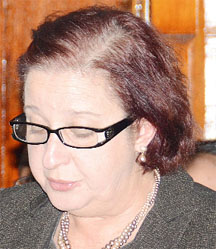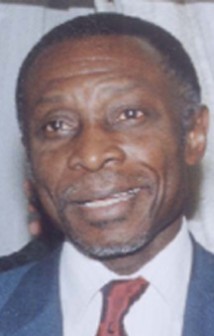The Public Accounts Committee (PAC) yesterday agreed to set up a sub-committee which will examine and make recommendations on the criteria for nominees to the PPC as well as the processes that prelude the setting up of the body as PAC members seek to gain some ground.
According to Government Whip and member of the Public Accounts Committee (PAC) Gail Teixeira, the PAC recognised that though some political and legal dimensions relating to the setting up of the Public Procurement Commission (PPC) are yet to be worked out, there exists room to move forward with regard to the determination of the criteria of nominees to the commission, and the procedures that will need to be followed before it is set up.
One such procedure is the mandatory two-thirds vote that is needed from the National Assembly before the names nominated by the Alliance for Change (AFC), A Partnership for National Unity (APNU) and the People’s Progressive Party/Civic (PPP/C) are accepted.
The members of the sub-committee, which will meet for the first time tomorrow, are PPP/C MPs Manzoor Nadir and Teixeira, APNU MP Volda Lawrence and AFC MP Trevor Williams. The sub-committee, upon examining the procedural and criteria-related dimensions of the setting of the PPC, will be required to make recommendations to the PAC for consideration. Asked how long this sub-committee will function for, Teixeira said that it depends on how effectively the committee does its work.


Commenting on this development, APNU MP and Chairman of the PAC Carl Greenidge said the committee has agreed that the setting up of the sub-committee will ensure that the best persons available are appointed to the PPC.
Both members seemed optimistic about the committee, likely a result of the fact that some ground has been made in a long time.
Although the matter of the PPC has been on the agenda of the PAC for some time much action had not been taken until last week when Williams called for a vote on the names which had already been submitted to the PAC. While the AFC and the APNU have submitted their nominees to the PPC, the PPP/C is yet to name its nominees to the PPC.
Movement by the PPP/C in this area hinges on whether Cabinet is allowed to keep its ‘No-Objections’ powers in the tendering process as it has indicated that it will move forwards if it is allowed to maintain those powers. Both the AFC and APNU have opposed granting the PPP/C this desire.
According to Williams, he recognised that the PPP/C will not abandon its position, and, noting that his own party would not allow Cabinet to retain its ‘No Objection’ powers, called for a vote to send the already nominated names to the National Assembly.
Even if Williams were successful in his call for a vote it not likely that the list of names would have been accepted by the National Assembly since there is need for two thirds of the National Assembly; the combined opposition’s one seat majority is insufficient to get the job done. It is unlikely that the government would have voted for the list since it has not yet named its nominees, and is not ready to move forward with that aspect of the process.
At any rate, Williams’s attempt was greeted by caution by Lawrence who indicated that the process of setting up the PPC was complicated and urged against rushing it without having all the constitutionally mandated pieces in place.
Greenidge also reportedly recognised the need for caution to be exercised in the matter, but Williams said Greenidge also acknowledged that progress has not been made for some time.
A decision was therefore taken to dedicate at least part of each PAC sitting to working the kinks out of the process. Yesterday’s meeting was the first since that decision was made and the sub-committee is the result of yesterday’s deliberations.
Another recommendation made yesterday, by the opposition parties, is for permission to be granted to the general public to submit the names of persons they would like to see on the PPC. However it was decided that this suggestion will be left for deliberation by the sub-committee, considering the fact that the general public may be unaware of what the criteria for such personnel are, and might nominate persons who do not fit the stipulated criteria.




